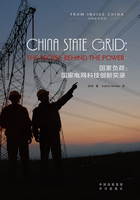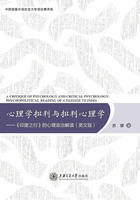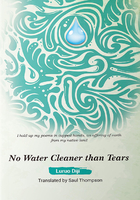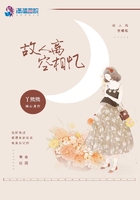One summer, along about 1904, my father rented a camp on a lake in Maine and took us all there for the month of August. We all got ringworm from some kittens and had to rub Pond’ s Extract on our arms and legs night and morning, and my father rolled over in a canoe with all his clothes on; but outside of that the vacation was a success and from then on none of us ever thought there was any place in the world like that lake in Maine. We returned summer after summer — always on August 1st for one month. I have since become a salt-water man, but sometimes in summer there are days when the restlessness, of the tides and the fearful cold of the sea water and the incessant wind which blow across the afternoon and into the evening make me wish for the placidity of a lake in the woods. A few weeks ago this feeling got so strong I bought myself a couple of bass hooks and a spinner and returned to the lake where we used to go, for a week’ s fishing and to revisit old haunts.
I took along my son, who had never had any fresh water up his nose and who had seen lily pads only from train windows. On the journey over to the lake I began to wonder what it would be like. I wondered how time would have marred this unique, this holy spot — the coves and streams, the hills that the sun set behind, the camps and the paths behind the camps. I was sure the tarred road would have found it out and I wondered in what other ways it would be desolated. It is strange how much you can remember about places like that once you allow your mind to return into the grooves which lead back, you remember one thing, and that suddenly reminds you of another thing. I guess I remembered clearest of all the early mornings, when the lake was cool and motionless, remembered how the bedroom smelled of the lumber it was made of and of the wet woods whose scent entered through the screen. The partitions in the camp were thin and did not extend clear to the top of the rooms, and as I was always the first up I would dress softly so as not to wake the others, and slide out into the sweet outdoors and start out the canoe, keeping close along the shore in the long shadows of the pines. I remember being very careful never to rub my paddle against the gunwale for fear of disturbing the stillness of the cathedral.
The lake had never been what you would call a wild lake. There were cottages sprinkled around the shores, and it was in farming country although the shore of the lake were quite heavily wooded. Some of the cottages were owned by nearby farmers, and you would live at the shore and eat your meals at the farmhouse. That’ s what our family did. But although it wasn’ t wild, it was a fairly large and undisturbed lake and there were places in it which, to a child at least, seemed infinitely remote and primeval.
I was right about the tar: it led to within half a mile of the shore. But when I got back there, with my boy, and we settled into a camp near a farmhouse and into the kind of summertime I had known, I could tell that it was going to be pretty much the same as it had been before — I knew it, lying in bed the first morning, smelling the bedroom, and hearing the boy sneak quietly out and go off along the shore in a boat. I began to sustain the illusion that he was I, and therefore, by simple transposition, that I was my father. This sensation persisted, kept cropping up all the time we were there. It was not an entirely new feeing, but in this setting it grew much stronger. I seemed to be living a dual existence. I would be in the middle of some simple act, I would be picking up a bait box or laying down a table fork, or I would be saying something, and suddenly it would be not I but my father who was saying the words or making the gesture. It gave me a creepy sensation.
We went fishing the first morning, I felt the same damp moss covering the worms in the bait can, and saw the dragonfly alight on the tip of my rod as it hovered a few inches from the surface of the water, it was the arrival of this fly that convinced me beyond any doubt that everything was as it always had been, that the years were a mirage and there had been no years. The small waves were the same, chucking the rowboat under the chin as we fished at anchor, and the boat was the same boat, the same color green and the ribs broken in the same place, and under the floor, boards the same fresh-water leavings and debris-the dead hellgrammite, the wisps of moss, the rusty discarded fishhook, the dried blood from yesterday’ s catch. We stared silently at the tips of our rods, at the dragonflies that came and went. I lowered the tip of mine into the water, tentatively, pensively dislodging the fly, which darted two feet away, poised, darted two feet back, and came to rest again a little farther up the rod. There had been no years between the duckling of this dragonfly and the other one — the one that was past of memory. I looked at the boy, who was silently watching his fly, and it was my hands that held his rod, my eyes watching. I felt dizzy and didn’ t know which rod I was at the end of.

